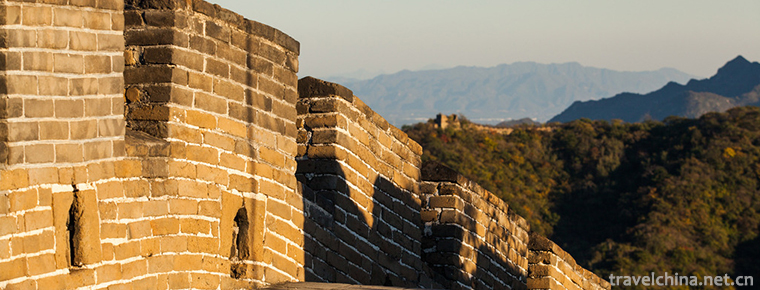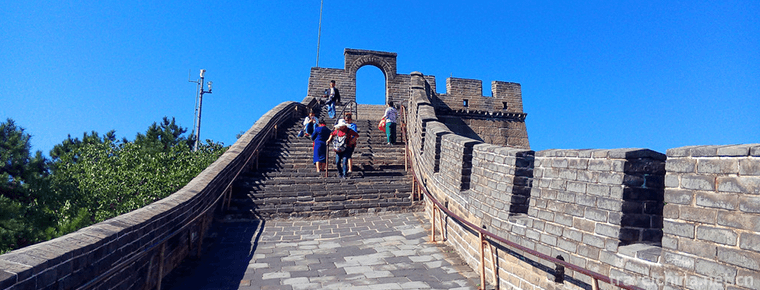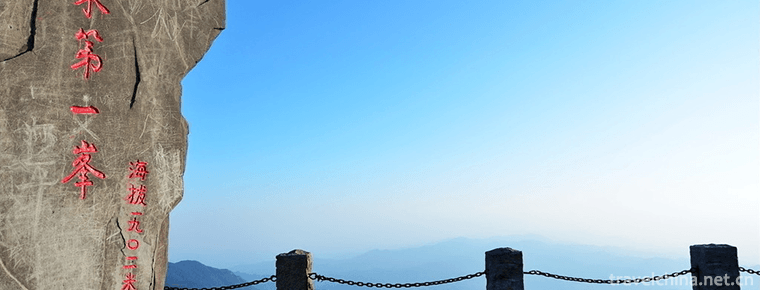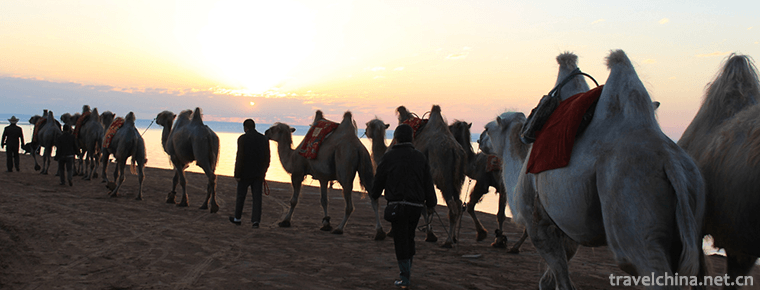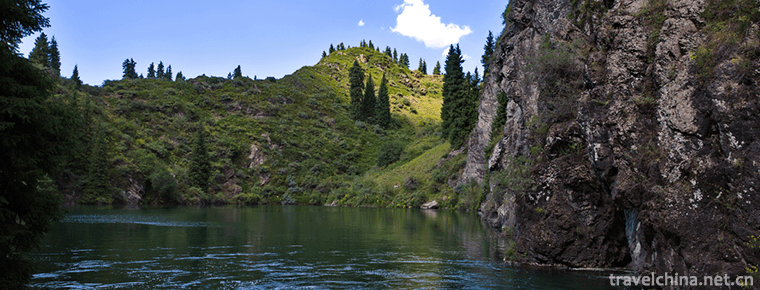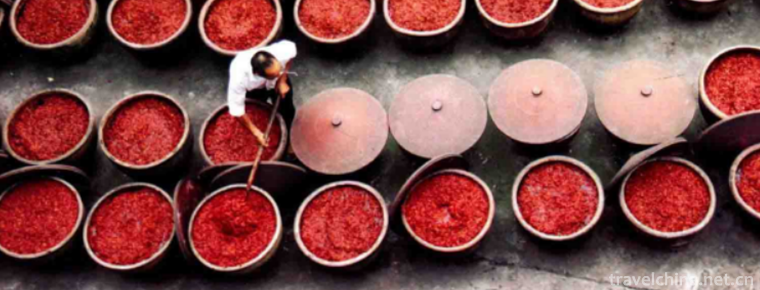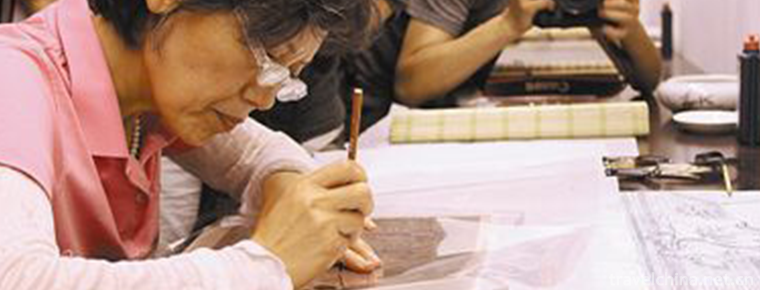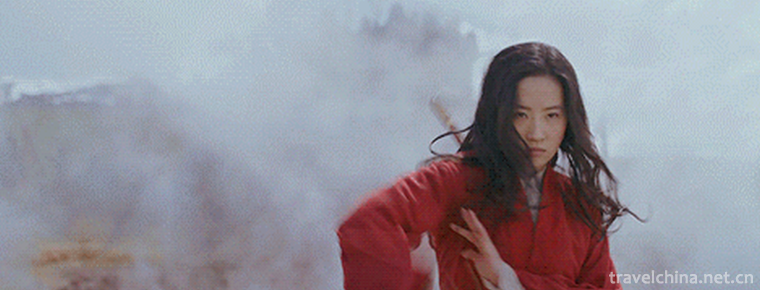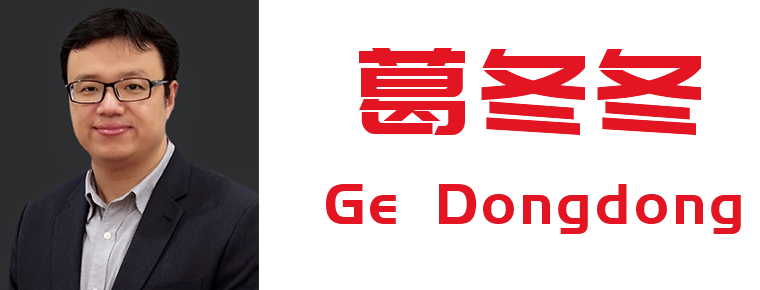Dong Opera
Dong Opera
Dong Opera, one of the national intangible cultural heritage, is a local traditional drama in Liping County, Guizhou Province, Tongtong Dong Autonomous County, Hunan Province and Sanjiang Dong Autonomous County, Guangxi Zhuang Autonomous Region.
Dong Opera originated from Jiaqing to Daoguang in Qing Dynasty, and was founded by Wu Wencai, a Dong singer in Ladong Village, Liping County. All Dong Opera is sung in dialogues in Dong language. The language is vivid and the image is figurative. It is closely matched with music. It is clear and clear and lively. It is popular with the masses. Because Dong Opera is rooted in Dong Township, it has strong characteristics of Dong nationality, and has a strong voice and emotions. The combination of singing and dancing can arouse the resonance of Dong audience.
On May 20, 2006, Dong Opera was approved by the State Council of the People's Republic of China to be included in the first batch of national intangible cultural heritage list, with the number of heritage being IV-83.
historical origin
origin
The appearance of Dong Opera is marked by Mr. Wu Wencai's (1792-1845) adaptation of Li Dan Fenghao, a translation of Shushaji, a handed down by the Han people, and Mei Liangyu, a translation of Erdumei, a Han biography. This stage, about ten years (1828-1838), is the embryonic stage of Dong Opera. This stage of Dong drama, whether script, performance, singing, costume, props, dance beauty are very simple and rough; although it is still in the "embryonic" stage of drama, but it is a new type of drama must experience the process of imitation, learning and learning.
Development
The development and dissemination stage of Dong Opera (1838-1911). The stage of development and communication has gone through two periods, the first period is 1838-1855, and the second period is 1855-1911.
The first period (1838-1855) was marked by the appearance of Zhang Honggan's "Jin Han Lie Mei". At the initial stage of Dong Opera, Mr. Wu Wencai set a precedent for the adaptation of Dong Opera creation according to the legendary stories of the Han nationality. Many opera singers and dramatists who had received Han culture education in various places learned from Mr. Wu Wencai's creative methods and created and adapted quite a number of Dong Opera with the main content of the legendary stories of the Han nationality. For example, "Mao Hongyuying", "Liu Shidi", "Liu Gao", "Shan Boying Tai", "Chen Sheng Wu Guang", "Chen Shimei" and so on, but there is no surprising breakthrough in the arts of these plays. Lu Zi followed Mr. Wu Wencai's "Li" and "Mei" dramas, so that their emergence only plays a role in disseminating the new art variety of Dong Opera. However, during this period, Zhang Honggan (1719-1839), a Dong opera dramatist, creatively compiled the Dong Opera "Jin Han Lie Mei" based on the Dong folk narrative songs, and became the first folk opera dramatist in the history of Dong Opera to use the Dong people to ask for narrative songs and create and adapt the Dong Opera. Jin Opera is the first Dong Opera script in the history of Dong Opera, which mainly reflects the people's lives of Dong people. Its appearance, of course, marks that Dong Opera has gone through a decade of embryonic stage and entered a new historical period - the stage of development and dissemination. "The production of"Jin Han Lie Mei"(about 1838-1839) marked the beginning of the transition from the budding period to the prosperous period of Dong Opera. It enabled Dong Opera to complete the history of telling only legendary stories of the Han nationality, thus making Dong Opera enter a historical period in which the story of the people's lives of the Dong nationality was revealed as the main body."
In the second period (1855-1911), with the appearance of Limei in Jin Han Dynasty, some knowledgeable performers realized its value and influence, and began to learn to use folk narrative songs to create and adapt Dong Opera. Although the consciousness of these dramatists is ambiguous, they have not found out the historical innovation and breakthrough point of Jin opera in the creation of Dong opera, and there is a certain blindness. After the appearance of Jin Han Lie Mei, a large number of Dong opera projects based on Dong folk narrative songs have been produced, such as Sanlang Wumei, Zhinian Liumei, Putao, Huasai and Lang. Flowers, Langjun, etc. The emergence of these dramas shows that the development and dissemination of Dong Opera has reached an unprecedented grand occasion, laying a good foundation for the subsequent prosperity climax. Secondly, more importantly, Dong Opera has begun a historic progress. The attention of Dong Opera performers has shifted to the field of national excellent culture, completed the history of learning from simple reference, and made Dong Opera enter into a unique stage. The stage of sexual characteristics.
Boom
The boom period (1911-1960). The prosperity of Dong Opera can be divided into two periods. The first period is from 1911 to 1917, marked by the appearance of the Dong Opera "Beauty of the Pearl Lang and the Maiden"; the second period is from 1955 to 1966. After the founding of the People's Republic of China, the creation of "Beauty of the Pearl Lang and the Maiden" has been further improved and succeeded, becoming the representative drama of Dong Opera.
The puzzling stage of Dong Opera (1964-1979). The Dong Opera works in this period, due to the continuous strengthening of class consciousness and the continuous development of Extreme class concept, became a tool of obedience to politics.
In the new period of Dong Opera (also known as the innovation and exploration stage of Dong Opera), after the crushing of the Gang of Four, the Third Plenary Session of the Eleventh Central Committee of the Communist Party of China began a new and difficult exploration of Dong Opera, with a new climax and prosperity.
Cultural characteristics
Tune
The main tunes of Dong Opera are flat and mournful tunes. Flat or common tone, used in narrative lyrics, before the introduction, starting board; mournful tone, or cry tone, tear tone. In addition, in some plays, Huadan or Ugly often use Dong songs, Han folk tunes and so on.
Musical Instruments
The band of Dong Opera consists of orchestra and percussion. Orchestral instruments include erhu, corbel, Dong pipa, yueqin, bass and dulcimer, bamboo flute and lusheng. Percussion instruments include drums, gongs, cymbals and so on, but they are not generally used in singing, but only for the opening stage and the appearance and ending of characters. The accompaniment instruments of traditional Dong Opera are Erhu, bell, gong, drum and cymbal, while the new Dong Opera adds calf-leg pipa, bass-hu and yangqin.
perform
There are a lot of performances and basic forms of performance in Dong Opera. They pay more attention to the content of the singing, not to the performance, not to the hand, eye, mouth, body and footwork as other operas do. Besides singing, they also do not pay attention to doing, reading and counting.
When there are more than three people present in the performance of Dong Opera, only the two singers walk the word "one" through the door, and the rest of them stay where they are.
The clowns in Dong Opera have a special performance program. The clowns in Dong Opera often play various humorous or cunning characters. The main tasks in the play are to play tricks and banter, to activate the atmosphere, and to perform freely and exaggeratively.
role
Although the roles of Dong Opera are divided into life and ugliness, they haven't formed a stereotyped profession. Generally, the actors are assigned according to the needs of the characters in the play. Only the clowns have some unique performances. Their actions are funny and ridiculous. They mainly talk and jump. They are called "jumping clowns". The actors read little and mainly sing.
Representative repertoire
There are two main parts in the repertoire of Dong Opera. One is to compile or transplant dramas describing the life of the Han nationality, such as Mei Liangyu, Feng Jiao Li Dan, Mao Hongyuying, Liang Shanbo, Ruan Dajin, Ren Guibie Kiln, Chen Xingyuan, Broken Hongzhou, Chen Guilan and Liu Zhiyuan. The other is to write dramas describing the life of the Dong nationality, including Wu Mian, Gu Laoyuan, Qin Niangmei and Nai Tao. Butao, Sanlang Wumei, Menlong, Meidao, Huatuan Ruan Jun, Xuemei, Shunbao, Langye, Jinhan, Langhong, Mangzi, Driving Cave, Jinjunniangrui, Inconsistent, Dinglang, Flower Master, Yindong, Yindong, Female Eagle, Leibiyou, Junlang, Liang Shijin, etc.
Inheritance and protection
Inheritance value
1. The Value of Anthropology, Ethnology and Folklore
Dong opera is based on the farming rice economy in the areas inhabited by Dong people. It is one of the typical representatives of this cultural type and an important part of the existing cultural tradition of Dong people. In Dong Opera, we can see not only the factors of Dong's music and customs, but also the influence of Han and other minority nationalities. It is a treasure in the multi-ethnic culture. 侗戏的萌生、发展和最终形成,经历了100多年的历史过程,与侗族的民族史、文化史和民俗活动息息相关。 It vividly embodies the cultural tradition of this nation and its region.
2. Irreplaceable artistic value
In the history of Chinese drama, Dong Opera has been recorded in the history books. Its rich content, basic characteristics and inheritance history are rare in other Chinese operas. It blossoms in the palace of Chinese drama art, and its independent artistic character is irreplaceable. To rescue, protect and excavate Dong Opera can not only enrich and perfect the history of Chinese opera, but also promote the enrichment and perfection of the history of world opera.
3. Practical value
Dong Opera is popular with the Dong people. Dong people need Dong opera. As long as traditional Dong opera is innovated and transformed, it will glow with artistic youth. The rescue and excavation of Dong Opera will play an important role in enriching people's cultural life, improving people's quality, promoting people's all-round development and building a harmonious socialist society.
Inheritance status
With the change of society and the development of modern media, the history of Dong Opera occupying an absolute dominant position in the entertainment life of the people has passed, and now it is on the verge of extinction. It has become an intangible cultural heritage that needs urgent rescue and protection. It is faced with the problem of narrow source of subject matter and single use of language.
Inheriting characters
Zhang Qigao, male, Dong nationality, born in Liping, Guizhou in 1962. The second batch of national intangible cultural heritage projects, the representative inheritors of Dong Opera, Dong Opera Teachers.
Wu Shengzhang, male, Dong nationality, born in 1948 in Liping, Guizhou Province. The second batch of national intangible cultural heritage projects, the representative inheritors of Dong Opera, Dong Opera Teachers.
protective measures
The government has strengthened the protection of intangible cultural heritage, and more and more attention has been paid to the protection of Dong Opera. In 2005, Guizhou Provincial Association of Folk Artists conducted a census and certification of Dong Splash Playwrights in Liping County, issued certificates for them, and encouraged them to take apprenticeship and teach art. In 2006, Dong Opera was listed in the first national list of intangible cultural heritage protection.
social influence
Honor
In February and March 1955, Dong Opera "Qin Niang Mei" was performed by Guangxi folk amateur literary and artistic performance team and Sanjiang County literary and artistic team in Beijing, and won an excellent performance award.
Important performance
On September 3, 2018, actors performed Dong Opera Fukuan in Yanzhai Tun, Pingyan Village, Linxi Town, Sanjiang Dong Autonomous County, Guangxi.

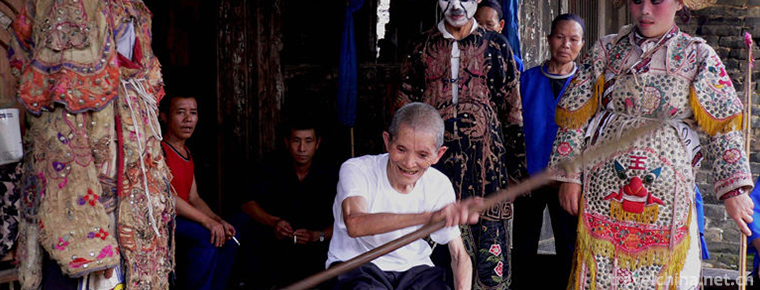
-
The Mutianyu Great Wall
The Mutianyu Great Wall in Beijing is located in Huairou District of Beijing, 73 kilometers from the urban area of Beijing. With a long history and splendid culture.
Views: 116 Time 2018-11-24 -
The Badaling Great Wall
Juyongguan Great Wall is a famous ancient city along the Great Wall of Beijing and a national cultural relic protection unit. It is a national AAAA scenic spot assessed by Beijing Tourism Bureau.
Views: 317 Time 2018-12-09 -
Guangdong First Peak Tourist Scenic Spot
Guangdong First Peak Tourist Scenic Area is the largest oasis on the Tropic of Cancer. It has a large area of primitive forests, stable forest ecosystem, dense evergreen broad-leaved forests.
Views: 126 Time 2019-01-13 -
Hongjiannao Scenic Area
Hongjiannao Scenic Area is located in Shenmu City, Shaanxi Province. It is located in the transitional zone between the Loess Plateau and Inner Mongolia Plateau, at the junction of Maowusu .
Views: 114 Time 2019-01-16 -
Xinjiang Tianshan
Tianshan Mountain in Xinjiang, the eastern part of the Tianshan Mountains, is also the main part of the Tianshan Mountains and the world natural heritage. Tianshan Mountain is one of the seven major m.
Views: 181 Time 2019-02-25 -
Changzhou comb
Comb, also known as Chlamys, is one of the eight hairdresses in ancient China. It is a local traditional handicraft with a long history in Changzhou City, Jiangsu Province..
Views: 255 Time 2019-04-16 -
Traditional Manufacturing Techniques of Bean Flap
Douban traditional craftsmanship, Pixian County, Sichuan Province, local traditional craftsmanship, one of the national intangible cultural heritage..
Views: 147 Time 2019-04-28 -
Copying and Reproducing Skills of Ancient Calligraphy and Painting
Ancient painting and calligraphy copying technology, the traditional copying technology of Beijing Palace Museum, one of the national intangible cultural heritage..
Views: 238 Time 2019-05-01 -
Hua Mulan Movie
Mulan is produced by Walt Disney Studios. Niki Caro Directing, Liu Yifei , Donnie Yen , Gong Li , Jet Li A live action movie starring. The file was released in North America in March 27, 2020. .
Views: 170 Time 2019-09-04 -
Ge Dongdong
Ge Dongdong, Shanghai University of Finance and Economics Professor, doctoral supervisor, director of China Operations Research Society; President of the Institute of cross science; Deputy director of.
Views: 336 Time 2019-09-07 -
Lingshan Temple
Lingshan temple is located in Mianning County, Liangshan Prefecture, Sichuan Province. It is 8 km away from Mianning County. It is the most famous temple in Liangshan Prefecture. It belongs to Mianning County as well as Xichang Satellite Launch Center..
Views: 173 Time 2020-10-16 -
Soil characteristics of Suining
The strata in Suining City are mainly limestone in the lower part and purplish red sandy soil and mudstone in the upper part. Therefore, Suining area is also known as "red soil land"..
Views: 297 Time 2020-12-16
